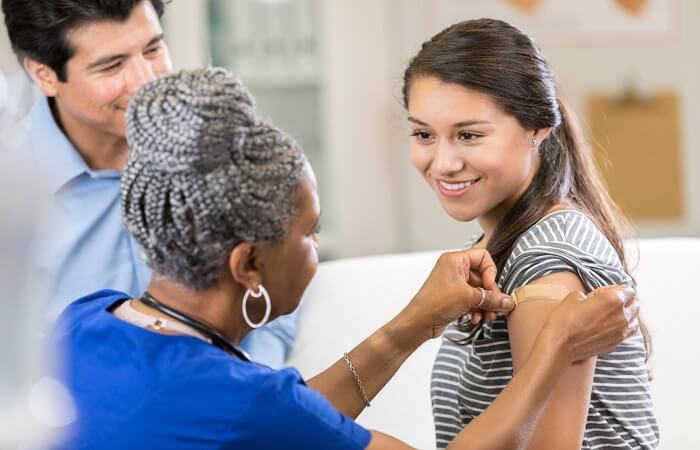Do Your Part to Protect Others: Get Your Shots
Vaccines are not just for kids.
Vaccines are not just for kids.

We tend to think that immunizations are just for children. In reality, however, to ensure our best health and that of those around us, immunizations are needed throughout our lifetime.
Protection from some childhood vaccines usually wears off over time, and adults are at risk for vaccine-preventable diseases due to their age, job, lifestyle, health or travel. Even safety professionals may not be all that safe to be around – specifically if they are not properly immunized.
In the workplace, adult immunizations are extremely important to prevent groups of employees from becoming sick and to avoid the related problems due to lost work days, lost productivity, overtime costs, or worse yet, having sick employees reporting to work while they are contagious.
The safety and health of your community (and workplace) relies on you doing your part to be properly vaccinated. According to the U.S. Department of Health and Human Services, community or herd immunity works this way:
“Germs can travel quickly through a community and make a lot of people sick. If enough people get sick, it can lead to an outbreak. But when enough people are vaccinated against a certain disease, the germs can’t travel as easily from person to person — and the entire community is less likely to get the disease.
“That means even people who can’t get vaccinated will have some protection from getting sick. And if a person does get sick, there’s less chance of an outbreak because it’s harder for the disease to spread. Eventually, the disease becomes rare — and sometimes, it’s wiped out altogether.”
In an attempt to prevent another pandemic like the 2010 H1N1 influenza global outbreak, the Centers for Disease Control, National Institute of Occupational Safety and Health evaluated vaccination coverage and attitudes among a group of public-school employees. NIOSH HHE Program investigators surveyed 412 of 841 school district employees. Fifty-eight percent reported getting the flu vaccine for the 2012-2013 flu season, and 29% (120 employees) reported having influenza-like symptoms. Most employees reported getting the flu vaccine at the school district central office.
The most common reasons reported for not getting a flu vaccine were personal beliefs that the vaccine did not work or was not needed, or that there wasn’t enough time to get vaccinated. Not surprisingly, employees who had positive attitudes and perceptions about the flu vaccine and those who had received the flu vaccine the year before were more likely to have been vaccinated. Alarmingly, the majority of those who experienced flu-like symptoms (77%) said they went to work anyway. The two most common reasons cited for doing so were professional obligation to show up and believing the symptoms would not make others sick.
NIOSH HHE program investigators recommended that the school district work with local vaccine providers to offer the flu vaccine to employees at each of the schools, and that the school districts educate employees about the flu and the flu vaccine, emphasizing risk of infection, vaccine effectiveness and safety. NIOSH recommends that employees not go to work when ill with flu-like symptoms, which include fever, cough and sore throat.
According to the CDC, “all adults need immunizations to help them prevent getting and spreading serious diseases that could result in poor health, missed work, medical bills and not being able to care for family.”
At a minimum, CDC recommends that adults get the following:
Several factors, such as age, lifestyle, health, risks, travel and prior immunizations will determine the specific vaccinations you will need. At your next doctor visit, ask about getting all of your recommended immunization shots.
Safety professionals should set the example, so do your part to protect those around you.
With a century-long legacy, the National Safety Council is a global center for safety expertise. Let's work together to align resources. We look forward to learning about ways we can join efforts to expand safety everywhere!
There are no items in your cart